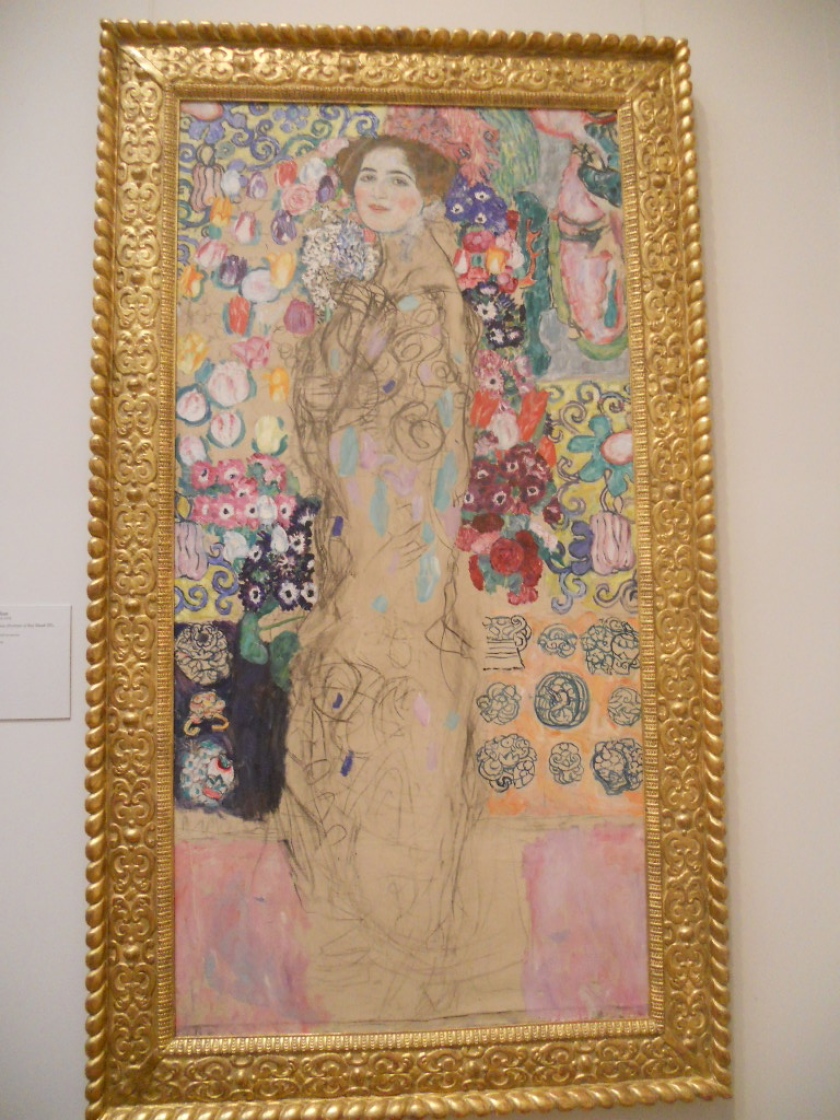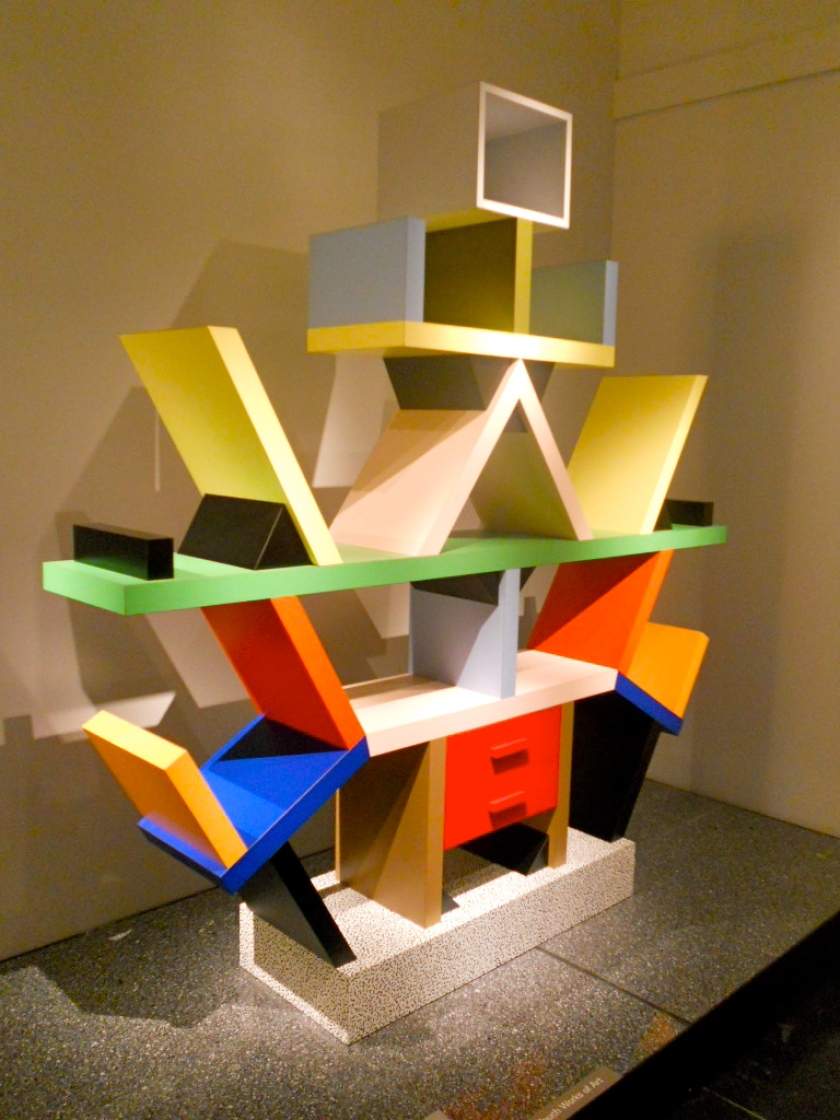I went to the Metropolitan Museum of Art for a chance to see the supposedly “tear-inducing” Alexander McQueen Savage Beauty exhibit. This is a photo diary and compilation of notes from the rest of my visit there, so feel free to skip this post since it’s hardly fashion-inclined…
I’m the slightest bit of a museum junkie.
I adore ancient history and art—Egyptian culture has always fascinated me especially. Granted I’m no history buff—I enjoy it but cannot call myself as knowledgeable as I’d like to—or art history major, but these are just my interpretations & observations. Little notes from my recently acquired Archie Grand (!) notebook:
- “Recumbent lion” = imposing lion guards entrance to a sanctuary, symbol of royalty as lions were the most powerful predator of the steppes bordering the Nile River. apparently females—the lionesses—embodied deities (!)
- Similarities between Roman-ruled Egyptian & Eastern styles… depiction of animals, demons. there’s a discrepancy in artistic style within Egyptian art that toggle between Eastern influences and Roman influences?
- Favorite period… Macedonian Ptolemaic Periods… Cleopatra?!
- Shroud of a woman in Egyptian dress… sexuality & femininity emphasized always
- Funery papyrus of Sethnakhte, who adores Osiris, flanked by Nephthys on the left & Isis on the right
- Vivid, soothing color palette of paintings… rich camels, teals, creamy whites.
- Adoring the depiction of women; there’s a reverence for the female sex present in their artwork (deities & lionesses, etc.). emphasis on female sexuality as well, uninhibited but nothing vulgar.
- I wrote a paper about the Cultural Revolution once; its impact on me has never for a moment ceased. What he did to the Chinese culture was unfathomable.
- Glass, paint, gold, silver & palladium leaf; a stunning sight to behold. French art deco at its finest.
An amazing, breathtaking piece, ca. 1897-99, made of enamel, opal, amethyst. I rarely stop for jewelry pieces, but after overhearing a French couple discuss it, I couldn’t help but eavesdrop and ogle for myself…
- 1876-1878 Lalique apprenticed with noted Parisian jeweler Louis Aucoc. By the 1890s he opened his own workshop in Paris and since became one of the most admired jewelers of his own time.
- Forwent the traditional precious stones and conservatively classical settings and instead combined semiprecious stones with materials like enamel, horn, ivory, rock crystal, coral & irregularly shaped Baroque pearls. settings and design were always rooted to organic inspiration, typically asymmetrical in curves and elaborate in flourishes
- Designed this piece for his second wife, Augustine-Alice Ledru; details are impeccable and incredibly evocative of all things sensual. main motif is repeated throughout the length of the necklace, separated by an opal mounted on gold tendrils—an attenuated female nude with stylized, curled hair swirling about her head. arms curve downwards and become a border that encompass enamel/gold birds (swans, I think?) & a stunning, cabochon amethyst.
- One in an uncommissioned series of idealized, females nudes
- Simplified, almost abstract features because, according to Piccirilli, “Every person has his own ideal of beauty stored away in his subconscious mind. When the observer is denied the opportunity of personally visualizing his ideal type.”
- Beautiful, sensual figure and pose… I stood in front of this one for a while (during which two women were over my shoulder, watching/reading/commenting on how “beautiful” my notes were—haha!—and a group of men were not-so-inconspicuously taking photographs of me even when I stepped away after thinking I was in the way of their frame of the statue; nope, I was wrong…)
. . .
x
P.S.: My outfit of the day here, and review of the McQueen exhibit here.










Goshh I love Gustav Klimt!
x
I’m a museum junkie too. I actually tagged along with friends to see the Korean War Museum the other day–they had to go for a class; I just wanted to go.
That necklace IS beyond stunning, and I love the way artists can capture so much in a statue. Now that I’m older, I understand better why they preferred nudes.
Also I remember when I learned about the Cultural Revolution as well. It was pretty much heartbreaking. Though, I do remember my professor telling us that “luckily, the Taiwanese took the most important treasures/artifacts with them when they fled China.”
@Samantha Elisabeth: Right? There’s something so beautiful and vulnerable about the nude figure – less is more, and every body in its naked form is beautiful. It’s incredible when you think about it artistically, scientifically, religiously, etc.
And yes, thank GOD! It’s so tragic that so much of historical archives and work was destroyed. Blasphemous, actually. Thank God not all was lost! x
Hello there, simply turned into aware of your blog thru Google, and found that it is really informative. I?m gonna watch out for brussels. I will appreciate if you continue this in future. A lot of other folks will be benefited from your writing. Cheers!